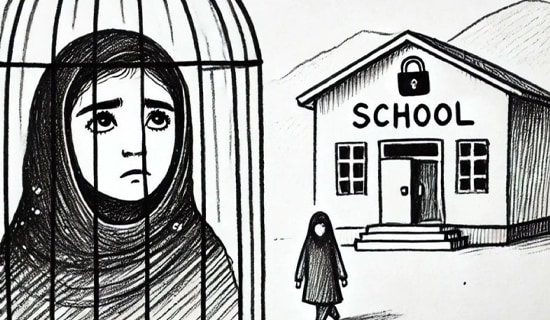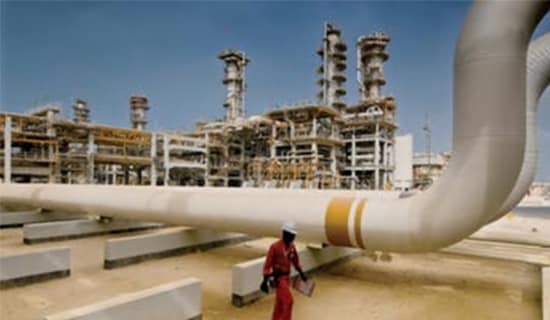Following the Iranian state media's censoring of its coverage of the anti-regime unrest in Syria, on the claim that it was a domestic Syrian matter, two articles were published on the issue in Iran, one criticizing the censorship and the other dealing with the implications of this unrest on the Tehran-Damascus axis.
On March 29, 2011, the moderate-conservative Iranian website Asr-e Iran came out against Tehran's position vis-à-vis the current unrest in Syria – i.e. that it is a Western plot[1] – and stated that the Iranian regime's censorship of coverage of these events was more severe than that imposed by the Syrian regime. It added that the fact that Syria is part of the axis of resistance, along with Iran, is no justification for Iran's failure to cover Syrian President Bashar Al-Assad's "massacre of demonstrators" and "dictatorship" against his own people. The website also criticized Iran's failure to report on the Syrian regime's violation of the honor of Islam and desecration of mosques during the unrest.
In an article published April 7, 2011 on the Iran Diplomacy website, former Iranian ambassador to Lebanon Mohammad Irani assessed that Assad's regime would be undermined if he did not undertake the reforms that his people were demanding. He also assessed that the unrest in Syria was not good for Iran, and could have a negative impact on the Tehran-Damascus axis, and added that any regime that seeks to preserve its stability cannot suppress its people for years.
Following are the main points of Asr-e Iran's criticism[2] and Mohammad Irani's comments: [3]
Asr-e Iran: The Syrian Regime Silences Any Other Voices
"In the past two weeks, Syria has witnessed popular protests that provoked a reprehensible and bloody response from its government – [a response] that cost many victims. The protests in Syria are still underway, and dozens of clips and images of the popular protest and the massacre of demonstrators have already been released. Despite all this, [Iran's] Broadcasting Authority is refraining from dealing with the issue and its reverberations within [Syria], preferring to remain silent over these events.
"The following reasons explain why the broadcasting authority should have covered the changes in Syria, and why its silence was a mistake:
"Of all the countries in the region in general, and particularly those now dealing with the waves of protests, the changes in Syria are the most important and newsworthy for the Iranian public. The level of relations and cooperation between Iran and Syria is the highest in the region, particularly in the strategic realm. Every year, a million Iranians visit Syria, and many Iranian companies and investors operate there. All this makes the Iranian public keen to know about the changes in Syria... "
"The State of Political Freedom in Syria Is Several Times Worse Than in Most of the Arab Countries"
"The basic question here is: How is Syria's closed [regime] system different from the other tyrannies in countries such as Tunisia, Egypt, Libya, Yemen, Bahrain, and Jordan? Likewise, what is the difference between demonstrators in Syria, whom the [Iranian] Broadcasting Authority ignores, and demonstrators in the other countries, on whom it reports?
"It is important for us to realize that the state of political freedom in Syria is several times worse than in most of the Arab countries in which there have been or still are protests. The current regime in Syria came to power via military coup, and Syria has maintained emergency security [law] for a record period (of nearly 50 years). Although it is called a 'republic,' the Syrian regime has been handed down from father to son, and the constitution has even been changed to allow this. Even now, the Assad family and the Ba'th party hold power, and there is no room or tolerance for a different or opposing voice.
"The [Iranian] Broadcasting Authority's two popular news channels, [aimed at audiences] overseas, [namely, the Arabic-language] Al-Alam TV and the [English-language] Press TV, did cover the events in Syria, airing very brief items and [a few] images from demonstrations held by Assad supporters. The question here is: What is the difference between foreign citizens and the Iranian people [that gives] foreign citizens the right to learn about the unrest in Syria from the Iranian Broadcasting Authority and denies this right to the Iranian people?"
Iran's Censorship Is Worse Than Syria's
"During the recent events in Syria, the [Iranian] Broadcasting Authority maintained a level of censorship that surpassed that of Syria. The Iranian Broadcasting Authority chose silence, while the Syrian government channels covered the protests and the massacre of the demonstrators there. (Of course, the television channels of the dictatorial regimes in Tunisia, Egypt, and Libya called the demonstrators terrorists and instigators of chaos, and claimed that there were no shootings at nonviolent demonstrations.) [Even] Al-Manar TV, which is affiliated with Hizbullah in Lebanon, and NBN, which is affiliated with the Shi'ite Amal party in Lebanon – both of which are thought of as defending Syria's foreign policy – broadcast news items on the recent changes in Syria.
"The Syrian authorities have so far confirmed the killing of several Syrian citizens, as announced on Syrian state television. The question here is: How can Syrian state television and all the news channels report on the events in Syria while the Iranian Broadcasting Authority chooses to maintain complete silence on the matter...?
"We must remember that during the events in Iran following the 2009 presidential elections, Syrian state television reported on them, and did not maintain a policy of silence."
Syrian Security Forces Desecrated the Mosques
"A noteworthy incident took place, during the suppression and massacre of the demonstrators in Syria, [namely,] the Syrian security forces' attack on demonstrators who had holed up in the Al-Omari mosque in the city of Daraa, in which some 20 people were killed.
"With this move, [Syrian] security forces added the desecration of mosques to their killing of unarmed protestors; they [did so] by killing several Muslims in the mosque, merely because they took refuge [there] and demonstrated. The [Iranian] Broadcasting Authority should have covered this story too – just like it [covered] the burning of the Holy Koran [in the U.S.] – and should also have reported on the Syrian regime's disregard for the most basic laws of Islam.
"Some will say: Because the Syrian regime widely supports the Iran's policy of seeking justice and of [supporting] the resistance that opposes the occupation of Palestine and Lebanon, it should not be acted against. Nonetheless,... [these people] must be told that, along with this support, the Syrian regime also promotes absolute dictatorship in its domestic policy. Also, informing the Iranian people about the domestic situation in Syria does not mean acting against the Syrian regime; rather, it is part of the [regime's] obligation to report to the Iranian people on the most important changes in Syria.
"Since the [Iranian] Broadcasting Authority is silent on the popular demonstrations in Syria, the Iranian public will find out what is going on there by other means. But in the interim, its confidence in its national media will diminish, and it will turn to other media – not to [the regime's] broadcasting authority."
Former Ambassador to Lebanon: The Riots in Syria Are a Threat to Assad's Regime
"...The recent changes in Syria are serious, and they threaten the regime of Bashar Al-Assad... After the events of last Friday, April 1, 2011 in Syria, the country's government is in a fragile and complex situation... These events do not mean that the story is finished in Syria, because the situation there is different from that in other Arab countries.
"Assad enjoys support among the young generation [in Syria]... He has been through many crises, including the assassination of [Lebanese prime minister] Rafiq Al-Hariri, and has had some success in improving Syria's relations with America and France. He has attracted numerous investors [to Syria], particularly from the Gulf...
"The Syrian people are embittered over the fragmentation in Iraq and Libya, and worried that Syria will become [another] Iraq. The Syrians fear that if they act [against the regime] and armed clashes break out in the country, foreign intervention will undoubtedly undermine the country's security.
"Another card Assad currently holds is the positions of the foreign governments that have not yet seriously pressured Syria. The Americans still see Bashar [Assad] as a moderate and rational reformer whose presence can have [a positive] impact on regional stability, while regime change in Syria would endanger [this stability]. The French are putting forward an [identical] position regarding Assad, seeing him as important. They aspire to coordination with Syria, maintaining that Assad can successfully preserve the stability in the regions around Syria – for example, in Lebanon. Other countries, such as Turkey, and other Arab countries also support Assad."
The Changes In Syria Are Likely To [Negatively] Affect the Capabilities Of the Tehran-Damascus Axis
"The changes in the Arab world have so far worked in Iran's favor. But this trend was reversed following the changes in Syria, which has strategic ties with Iran and which has always been Iran's gateway to the Arab world. We [i.e. Iran] have always coordinated with Syria on the issues of Lebanon and Palestine, [but] the changes in Syria are likely to [negatively] affect this balance [i.e. the Tehran-Damascus axis], in terms of this axis's capabilities and in terms of its political maneuvering in the issues of Lebanon and Palestine.
"As for reforms... it seems impossible for the situation in Syria to go back to how it was. The people's demands are not many, and the regime of Bashar Al-Assad will therefore have to meet them. This is a good opportunity for him to parlay the threats against him from within his regime into an effort to promote a national reconciliation, without using the methods that have failed in Egypt and Tunisia; these methods are proving to be ineffective [also] in Libya, Yemen, and elsewhere...
"The people's main demand is for the immediate lifting of the emergency law, which has been in effect in Syria for more than 48 years... The lifting of such a law as soon as possible will not create a special problem for Assad... it will offer a positive response to most of the [people's demands] while allowing [Assad] to continue his regime...
"Iran, because of its strategic ties with Syria, also wants the [Syrian] people to have a role within their country. Iran maintains that the people are the primary basis for a regime, and that if the people's role is ignored, in Syria or anywhere else, stability will not last for very long, and the regime's foundation will not be strong. Thus, the greater the people's role in the regime and in running the country's political, economic, and social [aspects], the more stable Syria will be. Naturally, this will be useful for the future relations between Iran and Syria."
[1] For instance, Iranian Ambassador to Damascus Ahmad Mousavi stated that the fitna (civil strife) in Syria was the continuation of the Western-Israeli plot that previously brought about unrest in Iran following the 2009 presidential elections there, as well as the division of Sudan into two states. Fars (Iran), April 3, 2011. Also, the Iranian news agency Mehr said that the current unrest in Syria was an American-Israeli plot, and that Saudi Arabia might be an accessory to it. Mehr (Iran), March 28, 2011.
[2] Asr-e Iran (Iran), March 29, 2011.
[3] Iran Diplomacy (Iran), April 7, 2011.




